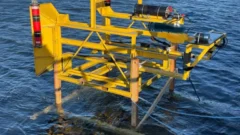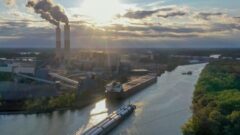Participating in the 2024 AGU Annual Meeting
NCEI News Feed
https://www.ncei.noaa.gov/news/agu2024
NCEI News Feed
https://www.ncei.noaa.gov/news/agu2024
NCEI News Feed
https://www.ncei.noaa.gov/news/agu2024
NCEI News Feed
https://www.ncei.noaa.gov/news/agu2024
NCEI News Feed
https://www.ncei.noaa.gov/news/agu2024
NCEI News Feed
https://www.ncei.noaa.gov/news/agu2024
NCEI News Feed
https://www.ncei.noaa.gov/news/agu2024
NCEI News Feed
https://www.ncei.noaa.gov/news/agu2024
NCEI News Feed
https://www.ncei.noaa.gov/news/agu2024
NCEI News Feed
https://www.ncei.noaa.gov/news/agu2024
NCEI News Feed
https://www.ncei.noaa.gov/news/agu2024
NCEI News Feed
https://www.ncei.noaa.gov/news/agu2024
NCEI News Feed
https://www.ncei.noaa.gov/news/agu2024
NCEI News Feed
https://www.ncei.noaa.gov/news/agu2024
NCEI News Feed
https://www.ncei.noaa.gov/news/agu2024
NCEI News Feed
https://www.ncei.noaa.gov/news/agu2024
NCEI News Feed
https://www.ncei.noaa.gov/news/agu2024
NCEI News Feed
https://www.ncei.noaa.gov/news/agu2024
NCEI News Feed
https://www.ncei.noaa.gov/news/agu2024
NCEI News Feed
https://www.ncei.noaa.gov/news/agu2024
NCEI News Feed
https://www.ncei.noaa.gov/news/agu2024
NCEI News Feed
https://www.ncei.noaa.gov/news/agu2024
NCEI News Feed
https://www.ncei.noaa.gov/news/agu2024
NCEI News Feed
https://www.ncei.noaa.gov/news/agu2024
NCEI News Feed
https://www.ncei.noaa.gov/news/agu2024
NCEI News Feed
https://www.ncei.noaa.gov/news/agu2024
NCEI News Feed
https://www.ncei.noaa.gov/news/agu2024
NCEI News Feed
https://www.ncei.noaa.gov/news/agu2024
NCEI News Feed
https://www.ncei.noaa.gov/news/agu2024
NCEI News Feed
https://www.ncei.noaa.gov/news/agu2024
NCEI News Feed
https://www.ncei.noaa.gov/news/agu2024
NCEI News Feed
https://www.ncei.noaa.gov/news/agu2024
NCEI News Feed
https://www.ncei.noaa.gov/news/agu2024
NCEI News Feed
https://www.ncei.noaa.gov/news/agu2024
NCEI News Feed
https://www.ncei.noaa.gov/news/agu2024
NCEI News Feed
https://www.ncei.noaa.gov/news/agu2024
NCEI News Feed
https://www.ncei.noaa.gov/news/agu2024

Ryan Kudish, meterorologist, reports on local sustainability efforts.
“I never touched a camera in my life before this segment,” admitted Ryan Kudish, meteorologist reporter for Local 5 news in Green Bay. But a year later, he’s getting pretty good at it.
The segment in question, Sustainably Speaking, started in November 2023 when WFRV partnered with some local organizations to provide more information about environmental issues in their viewing area. It was a good fit for Ryan.
In college he realized that weather is about more than the forecast. His teachers wanted students to experience weather out and about, not just in the classroom, so they used to go hiking.
“I learned to appreciate the weather we have,” Ryan said. “Look at the beautiful fall colors; listen to the birds.”
But Ryan has had a special concern for water since he was young. “I grew up in The Ocean State, where water is big,” he said. “I wanted to preserve the water for the next generation of Rhode Islanders.”
Now that he lives here, he’s focused on water quality issues that matter in Wisconsin. “Around here, people use water every day for recreation, drinking water, and washing our dishes,” Ryan said. “It’s so important to have access to clean, refreshing water. Not just for yourself, but for the whole community. It’s helpful for mind, body, and soul.”
In addition to telling stories from Fox-Wolf, Ryan worked with UW-Oshkosh and Door County to tell stories about PFAS, E. coli, phosphorus, and blue-green algae.
“I’m not an expert in any of these topics that I’m going out and filming,” Ryan said. “I’m actively learning about each topic that I get to film.”
While Ryan was putting in the hard work of learning how to tell a story, get the right angle, and set audio levels, he was inspired by what he heard. “It’s awesome to hear that people really care about these stories and topics. That’s why I enjoy this – weather has an impact, but these stories tell a different perspective.”
Ryan hopes that by telling these stories, other people in this area will learn about these challenges, and will take away the fact that they can be involved.
“So many organizations are doing cool things,” Ryan said. “If you want to make an impact, you don’t need to be an expert. Have a passion to clean up the water. They will teach you how to be involved, and you can be a supporter for life.”
There’s More to the Story!
In October, Fox-Wolf Watershed Alliance held an event to celebrate all the things that are going right for our local waters and to honor individuals and organizations that are making a difference. This issue of Watershed Moments highlights three of the individuals honored with a 2024 Impact Award. You can see the short videos for these and other honorees at our YouTube channel.
Watershed Moments is a publication of Fox-Wolf Watershed Alliance, sharing the stories of how your donations have impacted lives in our community. Read our latest project updates, make a secure online donation, or become a member at www.fwwa.org
The post Watershed Moments: Not an Expert appeared first on Fox-Wolf Watershed Alliance.
Fox-Wolf Watershed Alliance
https://fwwa.org/2024/12/03/watershed-moments-not-an-expert/?utm_source=rss&utm_medium=rss&utm_campaign=watershed-moments-not-an-expert

This article was republished here with permission from Great Lakes Echo.
By Georgia Hill, Great Lakes Echo
As climate change increasingly shapes the Great Lakes region’s ecology and economy, scientists plan to use underwater robots to gather previously inaccessible data they say will help communities adapt.
Great Lakes Now
https://www.greatlakesnow.org/2024/12/noaa-to-study-great-lakes-climate-change-with-underwater-robots/

Great Lakes Moment is a monthly column written by Great Lakes Now Contributor John Hartig. Publishing the author’s views and assertions does not represent endorsement by Great Lakes Now or Detroit PBS.
Historically, the prevailing thinking was that society could have either a healthy economy or healthy biodiversity, but not both.
Great Lakes Now
https://www.greatlakesnow.org/2024/12/great-lakes-moment-michigans-port-of-monroe-fosters-blue-economy-that-welcomes-wildlife/
NOAA Great Lakes Environmental Research Laboratory
NOAA Great Lakes Environmental Research Laboratory
https://noaaglerl.blog/2024/12/02/lake-effect-snow-what-why-and-how-2/
We know less about the bottom of the Great Lakes than we do about the surface of Mars, which is why the Great Lakes Observing System is leading a concerted effort to fully map the Great Lakes, surface to floor. Read the full story by the Chicago Tribune.
Great Lakes Commission
https://www.glc.org/dailynews/20241202-lake-bottom-mapping
The multi-billion-dollar Great Lakes shipping industry is bracing for the impact of a potential 25% tariff on Canadian imported goods, as recently promised by President-elect Donald Trump. Shipping stakeholders worry the tariffs will hurt agriculture companies on both side of the U.S.-Canadian border. Read the full story by WCMU – Mount Pleasant, MI.
Great Lakes Commission
https://www.glc.org/dailynews/20241202-tariff-plan
More than 70 ships have plunged to the bottom of the Great Lakes during November. Among them was the S.S. Daniel J. Morrell, which went down in 1966 and claimed all but one crew member. Read the full story by The Detroit Free Press.
Great Lakes Commission
https://www.glc.org/dailynews/20241202-daniel-j-morrell
On Thursday, Canada announced that land near the Lake Huron shoreline will not be used to permanently bury its spent nuclear fuel. The Nuclear Waste Management Organization instead narrowed its focus down to land that a tribal nation in northwest Ontario. Read the full story by the Toledo Blade.
Great Lakes Commission
https://www.glc.org/dailynews/20241202-nuclear-fuel-storage
The Wisconsin Department of Natural Resources announced earlier this month that it approved Enbridge’s permits for its Line 5 reroute project. The permits are a step in a long list of necessary approvals for the energy company’s project, which aims to bypass the reservation of the Bad River Band of Lake Superior Chippewa. Activists argue moving the pipeline farther up the watershed means it’s ultimately crossing more rivers and wetlands that drain into Lake Superior. Read the full story by Inside Climate News.
Great Lakes Commission
https://www.glc.org/dailynews/20241202-line-5
Ice coverage on Minnesota lakes has declined by an average of 10 to 14 days over 50 years, with ice-in dates about nine days later and ice-out dates moving four to five days earlier, the Minnesota Pollution Control Agency reported in 2021. But the effects of shorter lake ice duration? Researchers at University of Minnesota Duluth are trying to understand just that. Read the full story by the Duluth News Tribune.
Great Lakes Commission
https://www.glc.org/dailynews/20241202-minnesota-ice-coverage
A western Quebec First Nation is urging the provincial and federal governments to protect American eels from dangerous practices at dams in the upper St. Lawrence River watershed that have severely curtailed their population. Read the full story by CBC News.
Great Lakes Commission
https://www.glc.org/dailynews/20241202-american-eels
A new plan to free the Tim S. Dool, a large cargo ship that ran aground on a shoal along the St. Lawrence River near Morrisburg, Ontario last week is expected to be finalized early next week. Despite efforts to refloat the vessel, the vessel remains stuck. Read the full story by CTV News.
Great Lakes Commission
https://www.glc.org/dailynews/20241202-stuck-cargo-ship
Officials are launching a study to figure out how best to restore the area where Graham Creek meets Lake Ontario in Newcastle, Ontario. The Great Lakes Freshwater Ecosystem Initiative is earmarking $100,000 over a two-year period for the project. Read the full story by Durham Radio News.
Great Lakes Commission
https://www.glc.org/dailynews/20241202-clarington-waterfront
Since 1977, a mine waste slurry in Silver Bay, Minnesota, has grown to 2,100 acres — and the mining company wants to increase storage at the site. The expansion, which would include building upstream dams and managing stream mitigation adjacent to the tailings basin, which is located 600 feet above Lake Superior and only three miles away, has many concerned about the environmental safety of the project. Read the full story by Great Lakes Now.
Great Lakes Commission
https://www.glc.org/dailynews/20241127-wastewater-lake